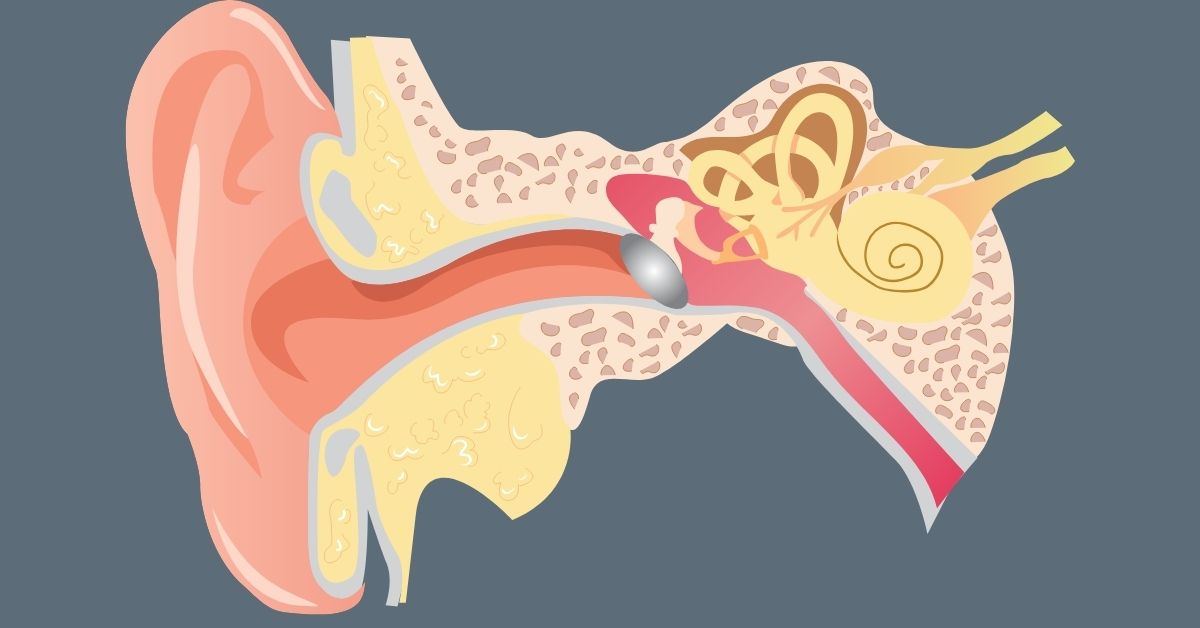In this article:
- Don’t Treat Your Teen Like a Cliché
- Stop Taking Everything So Personally
- 10 Tips to Help You Build a Trusting Relationship
- Tip #1 Research the effects of adolescence on teens.
- Tip #2 Find common interests and fun things to do together.
- Tip #3 Listen, really listen and ask clarifying questions.
- Tip #4 Let go, forgive, move on.
- Tip #5 Share your mistakes.
- Tip #6 Parents don’t spy.
- Tip #7 Be consistent, keep your promises.
- Tip #8 Admit when you make a mistake.
- Tip #9 Talk about your experience.
- Tip #10 Start building trust early in their life.
- From Mutants to Adults
No matter where you are or where you grow up, you always go through the same awkward moments of being a teenager and growing up and trying to figure out who you are.
Aimee Teegarden (American Actress, Model, Director, and Producer)
We parents can be sensitive creatures. Even today, my six-year-old said to me, “Dad, that’s not fair, I don’t like you!” when I ended screen time. I know not to take this personally, I’ve read the book, but hey, it still hurts.
In this article:
- Don’t Treat Your Teen Like a Cliché
- Stop Taking Everything So Personally
- 10 Tips to Help You Build a Trusting Relationship
- Tip #1 Research the effects of adolescence on teens.
- Tip #2 Find common interests and fun things to do together.
- Tip #3 Listen, really listen and ask clarifying questions.
- Tip #4 Let go, forgive, move on.
- Tip #5 Share your mistakes.
- Tip #6 Parents don’t spy.
- Tip #7 Be consistent, keep your promises.
- Tip #8 Admit when you make a mistake.
- Tip #9 Talk about your experience.
- Tip #10 Start building trust early in their life.
- From Mutants to Adults
I can only imagine what this will be like when my daughter is a teenager. My wife warns these years will be rough for me because my daughter will find my dad jokes much less hilarious.
But for now, I slay. The six-year-old still laughs at my jokes, asks for hugs, wants to know what I’m doing and where I’m going.
Let’s be honest, raising kids can be a cruel joke. At first, they’re all into you, hero-worship-mode, then KA-BOOM, adolescence kicks in, and the less we are around and the less we know about their lives, the happier they SEEM to be.
I remember quite well the difficulties I experienced as a teenager. While I pushed my mom and dad away, I actually needed them more than I knew.
One of my goals as a new dad was to build a trusting relationship with my daughter. While my daughter and I are close now, I’m curious about how our relationship will change.
The following ten tips grabbed my attention, specifically in what to expect, what is going on biologically, and what I can do to build trust between my daughter and myself in the teen years.
Don’t Treat Your Teen Like a Cliché
Let’s get real for a moment parents, teachers, aunts and uncles, boomers, and any other adults who forget what life was like as a teenager. Don’t treat your teen like a cliché.
Adults and popular culture often label teens as reckless, apathetic, uninterested, lazy, or angry strangers. If this is you, your first step in building a trusting relationship with your teen is to stop.
Your teen is not some kind of unknowable mystery that you can’t explain or fathom. Sure, you might become frustrated or downright stuck on how to respond to new changes and challenges, but to put it simply, they need to know you are there to treat them as an individual, as the same person they have always been. It’s incredible how both parents and teens know when the other has “checked out.”
You don’t have to have all the answers or any of them, but it’s vital they know you are available to them, even when you’re not in the same room.
Stop Taking Everything So Personally
“No matter how good you are, at some point, your kids are gonna have to create their own independence and think that Mom and Dad aren’t cool, just to establish themselves. That’s what adolescence is about. They’re gonna go through that no matter what.”
Eddie Vedder (Lead Singer of Pearl Jam)
One of the best tips I can provide to any parent is to do your research when you hit a wall. Find out what is happening and changing developmentally before coming to any conclusions. This helps in two immediate ways. First, you become aware of how their physical, mental, and social development is potentially impacting their behavior. And second, it makes all of their craziness less personal.
My daughter doesn’t dislike me. She loves me. But at times, she becomes quite mad when I end screen time. I have to remind myself, sometimes quite often, my daughter would still not express her anger and disappointment so forcefully unless she felt safe to do so.
Our children’s development requires us to create a safe environment to express themselves. The alternative is a teen who keeps secrets, doesn’t share what they are feeling, and in the end, doesn’t feel safe in trusting us.
So, before we write off our teen’s behavior as disrespectful or incomprehensible, we should do our homework! For our first assignment, read up on the 3 stages of adolescence (early, middle, and late). Reflect on your adolescent’s behavior and how you typically react. Share what you learn with your teen, too. The goal is to know more about what’s happening inside them developmentally to put these negative experiences in perspective as a temporary and natural part of life.
10 Tips to Help You Build a Trusting Relationship
“Being a teenager is chaotic because you’re kind of coming into your own, but you’re not an adult; you’re fighting with your parents over responsibilities and freedom.”
Troian Bellisario (American Actress)
Tip #1 Research the effects of adolescence on teens.
While I strongly suggest everyone take time to research how the effects of adolescence can potentially affect their teen, here is a quick summary:
During adolescence, our teen becomes more susceptible to peer pressure, making impulsive decisions, and does not fully comprehend the risk associated with a decision.
When your teen breaks a rule or makes what you consider a poor decision, take a deep breath and go through this list. Consider your teen’s developmental stage before discussing the situation with them. Consider utilizing the following tips below to help you not react but pause to build trust with this information in mind.
Tip #2 Find common interests and fun things to do together.
When I was a teen, my dad and I didn’t communicate a lot. But we did love to watch Texas Rangers baseball games together on tv. While I would prefer, we shared more, those games were special because the pressure was off, and we could just be ourselves.
Make a list. What are the activities both of you find fun? Or stretch yourself. What are the activities your teen likes to do that you can tolerate or learn to love? Sometimes, we just need to share space without being critical.
Tip #3 Listen, really listen and ask clarifying questions.
Instead of just reacting to your teen, consider what their intention might be. One of the best pieces of advice I’ve come across is to focus on their intention and not their behavior. To do this, we have to slow down, really think through what they are saying and why they might be saying it, and then ask clarifying questions before responding.
Tip #4 Let go, forgive, move on.
Parents, we’re not going through adolescence. Been there, done that. Letting go, forgiving, moving on starts with us. And yet, no matter how we want to let go, sometimes it’s really tough. So, look, sometimes the best way to rebuild trust is to go back to the first tip, do something interesting or fun together. This can seem counter-intuitive, especially when punishment may also be required, but again, take the long view, no matter what our teen does, they need to know we’re always there to support them.
Tip #5 Share your mistakes.
Take a moment to think through any mistakes you made as an adolescent during your teen years. Can’t think of any? Ask your family and friends. Don’t want to own up to your mistakes because you’re afraid you’ll be a bad example? Let that go. Again, we are trying to build trust and teach our kid how to learn from a mistake. Rest assured, if you have a really terrible, embarrassing, and juicy mistake, they will more likely share their mistakes with you!
Tip #6 Parents don’t spy.
While there may be some legitimate reason you need to spy, but as a general rule, respect your kid’s privacy. This includes online activities, a diary or journal, email, their phone, or eavesdropping on their conversations.
Tip #7 Be consistent, keep your promises.
One exercise is to think through how other adults (friends, family, coworkers) break your trust in them. Most of us don’t trust those who aren’t consistent, keep their promises, and follow-through. So, keep your commitments with your teen and be as consistent as you can when it comes to praise and criticism. One of the worse things we can do to hamper or break our teen’s trust in us is to break our promises.
Tip #8 Admit when you make a mistake.
When we aren’t consistent and keep a promise, it’s imperative to admit we’ve made a mistake. For some parents, admitting to your 15-year-old that you made a mistake or apologizing for an action can be challenging. However, being able to admit when you make a mistake is vital in developing trust.
Tip #9 Talk about your experience.
Spend some time thinking about your own experience growing up. Think about your friends and the kids in your own school. What were those years like? I grew up curious about why adults didn’t admit when they were wrong or didn’t know an answer.
Tip #10 Start building trust early in their life.
Several of the tips above can be applied early in your child’s development. Establish early that mistakes are a part of life, you made and continue to make mistakes, that your love is unconditional, and you welcome your child to talk to you about anything.
From Mutants to Adults
Everything about being a teenager and not feeling like you fit in is just magnified by being a mutant!
Anna Paquin (New Zealand-Canadian Actress who play Rogue in the X-Men movies)
Our teens are transforming into adults before our eyes. And like a caterpillar who has wrapped itself into a cocoon, our kids are vulnerable at this point in their development. As they develop their ability to weigh positive and negative, reward and risk, they are also pushing us away.
This development isn’t a reason to take a hands-off approach. It’s all the more reason to give them space while also letting them know we are there. When they make a mistake, we must remember what they are experiencing and reach out to them from here—not anger or an overwhelming feeling of betrayal. If you are in the throw of these feelings, give yourself some space to work through them before engaging or disciplining your teen.
Our teen needs us to help them navigate peer pressure, analyze actions and consequences, and plan for the future. If we haven’t established a trusting relationship, they will turn elsewhere for support.
If you have any recommendations, learned wisdom, or examples you’ve used to build trust with your teenager, please share in the comment section below.









